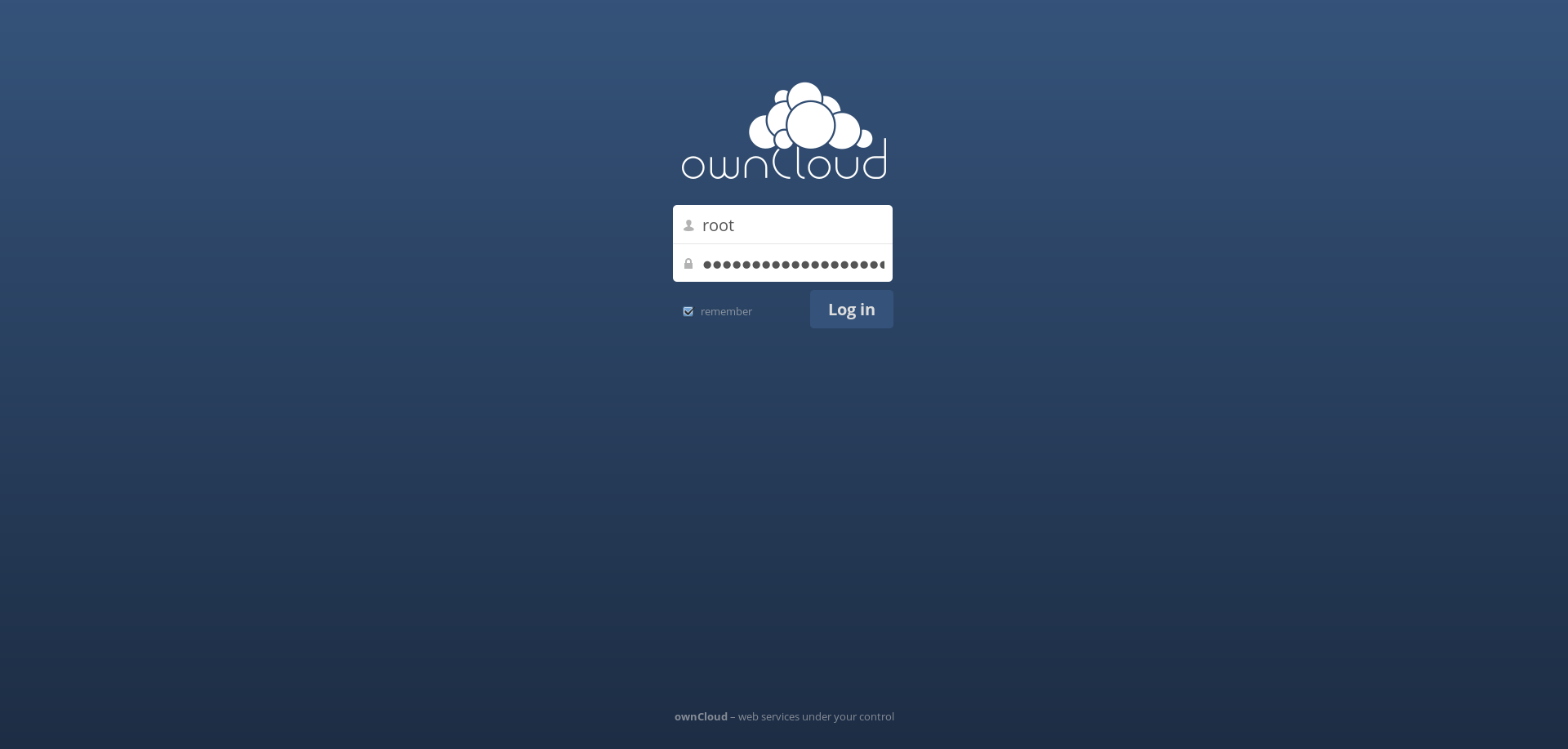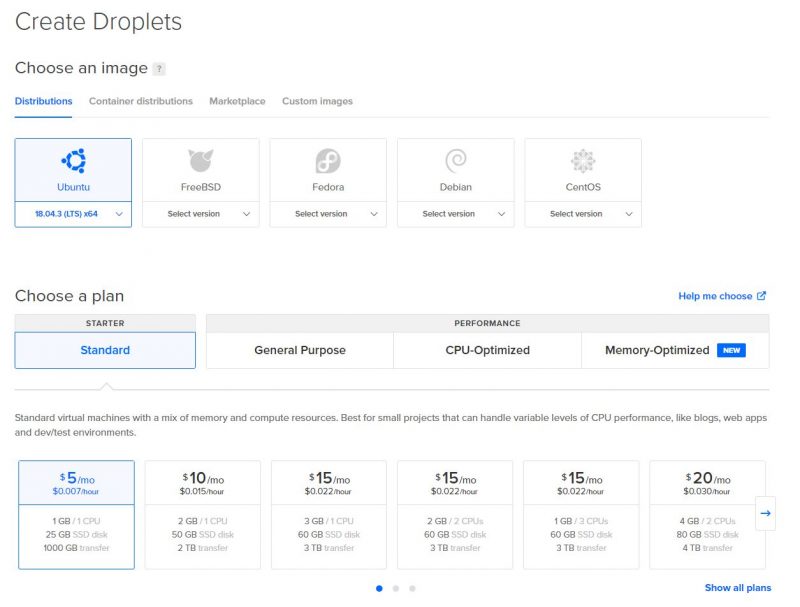


Now a very important step of creation, first let's select the authentication method with the virtual machine, the safest way is through SSH keys, but for ease let's choose the "One-time password" method, it will send a temporary password to our email. Monitoring: It installs some monitoring packages from DigitalOcean, useful for you to follow the status of your machine right from the DO control panel. IPv6 : Enables support for the new Internet protocol, IPv6 Private networking: Create a local IP, useful if in the future you want to create a hosting cluster, so you can use an internal IP with low latency.

Now let's select in which region we want our Droplet to be created, let's also configure some optional services: Now select the plan, for this article I will use the cheapest machine, select it as needed, I currently use a 15 dollar Droplet to host my blog and 14 other sites, 4 of which have more than 20k monthly hits: Let's create a server with the operating system Ubuntu Server 18.04, in DigitalOcean, let's use the most basic Droplet for testing: virtualmin : Our hosting administrative system, opensource software, beautiful, extremely complete and configurable. He will do all the magic of installing, configuring and administering all the services necessary for our hosting, Apache + PHP for dynamic websites, email service, FTP access configuration, creation and administration of user and email accounts, and much more.įirst of all, create your account at DigitalOcean (duh).DigitalOcean : All my "cloud infrastructure" is here, for R$22/month ($5 doletas/month, quote from ) you can upload a server that can handle smoothly between 10~15 institutional sites that don't receive many visits, and you also have all the freedom to scale on demand, with just one click you can increase your machine resources, with no extra configuration required! Another positive is their support, yyyy DigitalOcean
Digitalocean owncloud free#
cloudflare : Perhaps one of the most complete "freemiuns" services I've ever used, here I manage all my DNS settings and can count on many other very useful native free services: Security and DDOS prevention, Content Delivery Network (CDN), Cache and optimizations performance….

Normally I am against reinventing the wheel and whenever possible I prioritize the use of ready-made services that make my life easier, as long as they meet my needs… This was not the case and after many problems in “advanced” situations where I needed to optimize some configuration, I decided to look for a solution that would give me more autonomy. DNS? Is this a disease? Everything seemed so complicated that it led me to opt for services like UOL Host, Locaweb and hostgator, and with them I stayed and struggled for a long time…ĭisclaimer 1: If you are a lay user who is looking to set up a blog or an institutional website for your company and you don't have much technical knowledge, don't think twice, opt for one of these services! I personally recommend the hostgator, they have an intuitive admin panel and the support is relatively good…ĭisclaimer 2 : Website hosting can be somewhat ambiguous, so clarify that in this article when I refer to "website hosting": System to create and manage websites in PHP Creation and configuration of user account, email, FTP Some other standard hosting features found on the market.ĭisclaimer 3: If you are going to set up and offer hosting services, think and ponder about all the positives and especially negatives of taking this responsibility: You will have to deal and control the use of machine resources by your customers, spam on your server IP, access and account creation, possible downtime, managing back-ups and much more… It's quite a job! When I started as a Freelancer, I didn't know anything about hosting websites, much less servers.


 0 kommentar(er)
0 kommentar(er)
